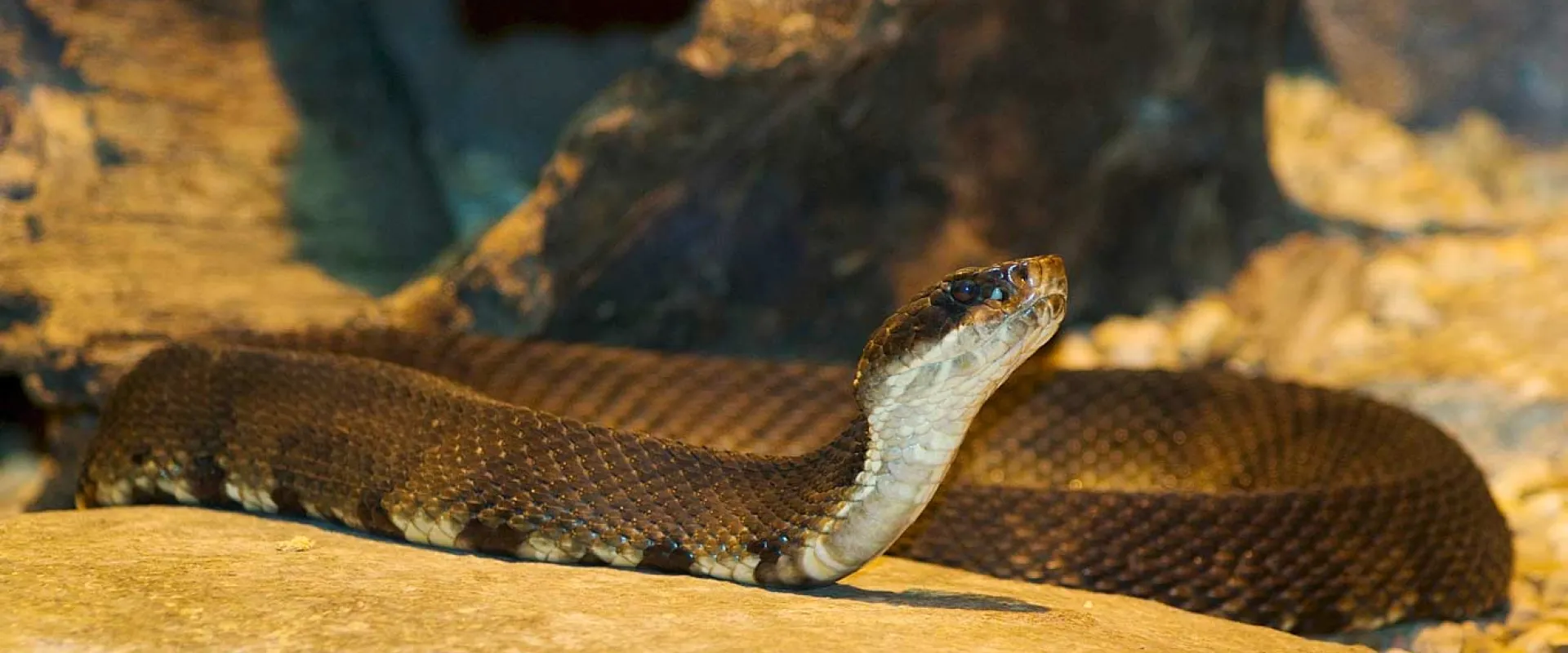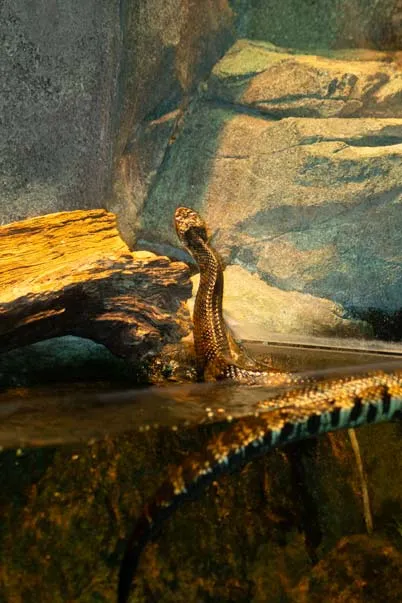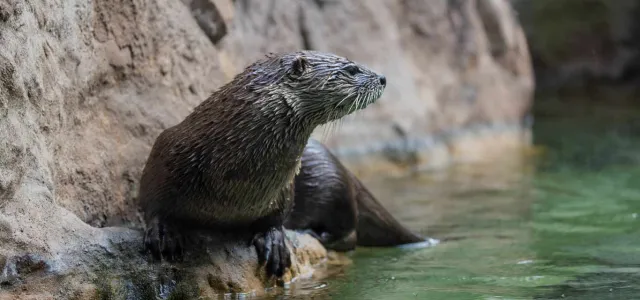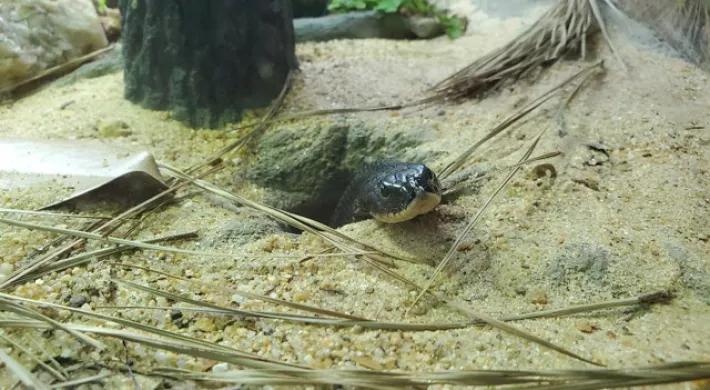Did you know cottonmouth are excellent swimmers, their head and body float high on the water? Learn more about cottonmouths.
The design of the cottonmouth habitat allows the snake to control its own body temperature. Basking sites provide hot spots and allow them to warm their bodies within the habitat while water can act to cool them down.
By marking snakes encountered on the North Carolina Zoo’s grounds, Zoo staff are learning valuable information about the status of our local snake population. In addition, snake research on site creates unique opportunities to teach visitors about the importance of these misunderstood but critical predators. Snakes are also tested for a fungal disease that is affecting an increasing number of wild snakes in North Carolina. You can read more about the Zoo’s work on wild snakes below, under related resources.
- Adults are solitary and rarely far from land.
- They get their name from the bright white lining of the mouth that is easily seen when opened.
- Excellent swimmers, their head and body float high on the water.
- Extinct in Wild (EW)
- Critically Endangered (CR)
- Endangered (EN)
- Vulnerable (VU)
- Near Threatened (NT)
- Least Concern (LC)
- Not Evaluated (NE)



